‘My house in Ipswich was out of control and I felt ashamed’
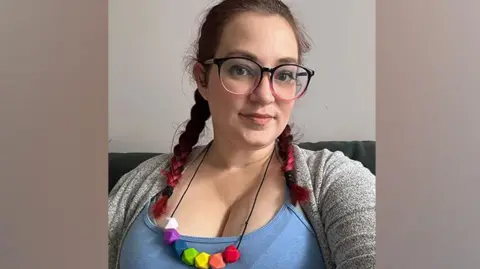 Kirstie
KirstieKirsty knew it was time to get help, but she was scared. “I was embarrassed,” she said.
The mother-of-three lost control of her Ipswich home after a traumatic incident left her bedridden.
“In May 2022, I gave birth to a stillborn baby girl and I had to continue raising my other two children, but every day was difficult and I was in bed for months,” she explained.
Every surface of the house was cluttered and one of the three bedrooms was inaccessible because it was filled with broken furniture, so her six-year-old son and nine-year-old daughter had to share a room.
The dining room was filled with baby equipment such as cots, rocking chairs and prams, and Kirsty couldn’t stand it.
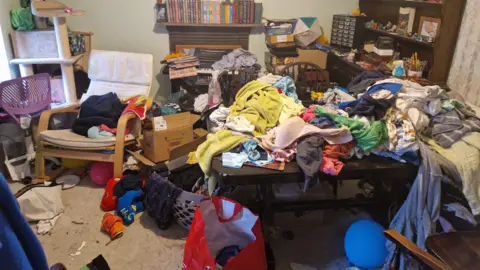 Kirstie
Kirstie“My husband Stephen and I both struggled with mental health issues and we were unable to make ends meet,” she said.
“I spent so much energy raising my kids and going back to work that I had nothing left.”
The NHS worker became pregnant with another child, but it was a high-risk pregnancy that left her anxiety “through the roof”.
She began receiving treatment at home, but a visiting nurse struggled to find space to sit.
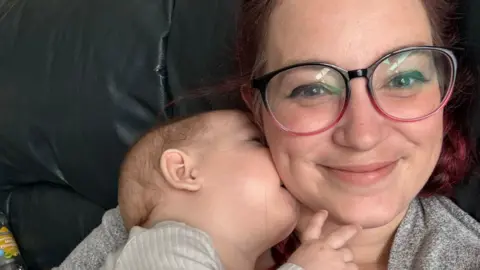 Kirstie
KirstieWhen their youngest son was born, Kirsty knew it wasn’t the ideal environment for him. After a week in the neonatal unit, she worried about taking him home.
They looked into decluttering services, but they were too expensive for her and her husband, who works in a supermarket.
“I took some pictures of the house and I was very nervous and shaking but I showed it to the leader of a baby group I went to and he contacted a health visitor who referred me to the charity Dora Brown, ” said the 37-year-old.
The Suffolk charity has a team of 80 volunteers who retrofit homes for free for families living in crisis.
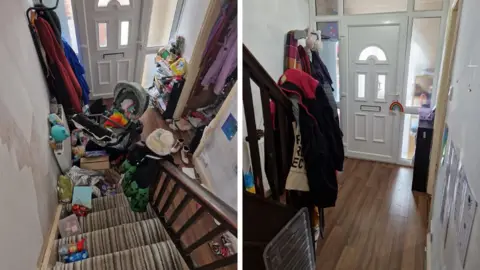 Kirstie
KirstieTen volunteers set up camp at Kirsty’s home in June but were “stuck”. They sort everything into piles to be discarded, saved, recycled or donated to charity.
They gave them more storage space, took away their trash, even their dirty clothes, and then brought it back and put it away.
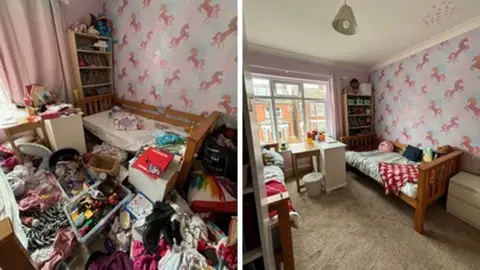 Dora Brown
Dora Brown“When you’re really frustrated and overwhelmed, these things feel like huge, insurmountable tasks. I’m just trying to get through each day.
“It was a very positive experience, completely non-judgmental,” she said.
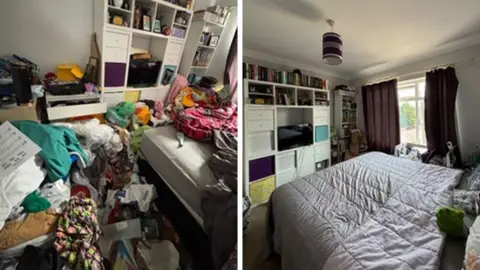 Dora Brown
Dora BrownJo Revett, director of the charity, said Kirsty was brave enough to let the charity into her home.
“We go through every item they have, and we’re in their personal space, which can be overwhelming for them.
“A big part of our ethos is no judgment. Families work with us on the day and we try to make it fun.”
Founded in 2020, Dora Brown has helped eight families in its first year of operation. Last year it supported 31 families and this year the number is similar.
She said most Dora families have experienced life-changing events, such as bereavement or domestic violence. Many live in poverty and face challenges from disabilities or physical or mental health problems.
Referrals are made through social services, schools and GPs, but the charity also allows people to request help for themselves or for friends or family.
“Sometimes they’re just overwhelmed by life. A typical Dora home is very cluttered, filled with items and broken items. It’s a home that hasn’t been cleaned in a long time,” Joe said.
“But we do see houses that are completely empty because people can’t afford furniture. Most houses have black mold. We often find families sharing a bed.”
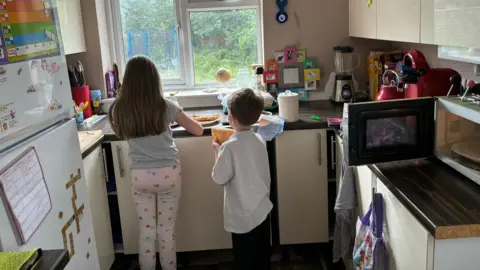 Kirstie
KirstieThe charity tries to make it as easy as possible for its mostly female volunteers to help.
“Some people come every week. Some people come once or twice a year, which is great. It’s fun and the volunteers are great at putting families at ease. People come back because they can see the immediate impact,” she said.
“We’re responding like a crisis. Many times, our families need a fresh start to get back on track. Not only does manual work create a clean, clear, and functional place to live, but it has an impact on health and wellness. Self-esteem, let It’s really important for kids to see that there’s another way to live, it breaks the cycle.”
The charity has a waiting list of families in need and hopes to expand across England, but this is subject to funding and it is currently “small but mighty” with six part-time staff.
 Kirsty Harris
Kirsty HarrisFor Kirsty and her family, the intervention was life-changing. She now feels confident that she has someone by her side. Her children are able to have play dates, they are all sleeping better and enjoying family time again.
“My daughter is learning an instrument and now she has her own bedroom where she can go and practice. We spend a lot of time together in the living room. It’s much easier to maintain now,” she said.
They recently hosted a party at their home to celebrate their son’s first birthday, the first Christmas in years where they had room for a Christmas tree.
“We’re in a really good place now and I’m so grateful to the charity for taking away the ongoing shame and worry.”



